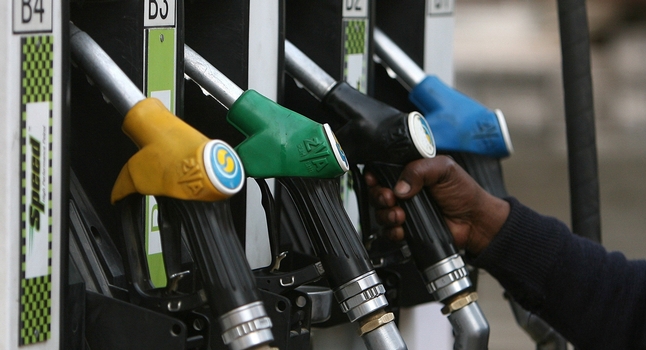With the majority of new cars sold in the UK are now running on Diesel – we ask the question: Are you really saving money by choosing a Diesel?
We agree that the headline fuel efficiency and MPG rating for today’s diesel powered cars are impressive, although sometimes hard to achieve if you are also not an avid Hypermiler. We are also not denying the road duty savings of many diesel cars compared to their petrol powered cousins. The real question is: will buying a diesel actually save you money. With diesel selling on average 5p a litre more than petrol, you might be surprised by the results.
To help sort this out, lets take the UK hottest selling car of the year – The Ford Fiesta. According Ford’s website, the cheapest petrol model Fiesta comes in at £9,795.00 (1.24 60PS) with the diesel version commanding £11,795.00 (1.4TDCI 70PS). That’s a £2000 premium for the derv engine.
Now we can work out the sums based on Mr Jones, driving an average of 12,000 miles a year and achieving the combined MPG figure (he’s not a Hypermiler)
Petrol Fiesta 52.3 MPG Combined
Total for 1st Year (inc purchase): £9,795.00 + £1397.78 fuel
Total: £11192.78 + £100 road tax
Diesel Fiesta 70.6 MPG Combined
Total for 1st Year (inc purchase): £11,795.00 + £1070.66 fuel
Total: 12865.66 + £20 road tax
After one year you are still £1592.88 down by opting for the diesel an even with the diesel saving you £80 road tax a year its still going to take you 4.92 years to cover the costs of buying the Fiesta diesel. This is based on an annual saving of £407.12 a year on road tax and fuel at today’s average prices.
But what if you are a seasoned motorway driver that spends a lot of time behind the wheel? The petrol Fiesta will cost you 11.6p a mile while the diesel will cost 8.9p a mile, a saving of 2.7p a mile. The sums show that you’ll need to do a total of 71111 miles in the first year to break even and I’m quite certain that I’d rather not do that in a Fiesta!
So why are diesel cars more expensive? We asked Ford’s nice PR lady this very question with the following reply:
“The materials, equipment and technology in a diesel engine cost more than that in a petrol engine.
The range of petrol and diesel Fiestas available reflects our aim to give customers a choice when considering the initial cost of the car and its running costs. Our aim is to give customers a good choice and range of vehicles and this bears out as we are able to maintain our position overall as Britain’s best-selling car and van manufacturer.
We don’t make recommendations to customers although we are able to give them reams of information through their dealer or on www.ford.co.uk where there are features and specifications charts to download. These include statistics for all engines. “
Most diesel engines these days are equipped with small high pressure turbo chargers and an array of emissions capture systems to try and filter out the dirt and grime that comes with running diesel fuel. This does account for the some of the additional costs of the cars manufacturing but you have to wonder if the premium is really to justify the MPG gains to be had by choosing the diesel option. You can hear the nice salesman now, “Yes Mr Jones, the diesel option is more expensive but just think of the fuel saving and road tax you will save. The road tax is only £20 a year!”
To sum up, we have just one recommendation: Do YOUR sums. If you travel enough miles in the year to warrant a diesel then clatter away but if like the majority of motorists you only cover up to the average of 12,000 miles a year, you might want to think again about what engine graces your new car.
We’d love to hear about your thoughts on the matter of petrol vs diesel. Feel free to leave a comment below or join the discussion on our busy and very knowledgeable Hypermiling Forum.
[ad]






I recently traded my ’02 BMW 325i in for a ’09 BMW 535d. Now I had spent a fair bit of time considering the increased cost of buying a diesel versus a similar powered petrol car. I also factored in my projected annual mileage and did some rough calculations as to the ownership cost for each car. The petrol did infact work out cheaper over a three year period but not by much (£360). I then looked at the unquantifibles such as real-world overtaking ability, noise, engine note, etc and these turned out to what swung my decision towards the diesel. The simple matter of having masses of torque available low down in the rev range meant real-world driving was nearly effortless. I didn’t have to thrash the engine all the way up to five thousand revs or more in order to get the best out of it.
Add to that, the greater availability of diesels for the type of car I was looking at meant I had more choice and therefore a better opportunity to get the spec level and car condition I was looking for.
Had the choice range been equal and engine characteristics not been an issue for me then based solely on numbers I would have gone for a petrol car.
These are just two of the reasons why I believe diesel sales are generally increasing.
You see, initial purchase cost of a more expensive diesel vehicle is not everyones sole criteria of swapping over from petrol to diesel.
When one becomes accustomed to the behaviour of driving a diesel car, its very difficult going back to petrol.
My new car is a diesel, i bought it knowing that the petrol alternative was nearly £3000 cheaper, now thats a huge difference in any drivers language, but i knew i would be at the fuel pumps far more often, and when i do travel large distances my economy would be poor compared to diesel.
Economics was not my priority when choosing a new car, it is for many, but it was diesel or nothing.
This is a difficult question. It actually depends upon the current diesel prices and the difference of diesel and petrol price.
In many cases, as the servicing cost of diesel cars is very high and daily running cost advantage with respect to petrol is not high, ( if the daily covered mileage is below 80~100 ) it is good to buy petrol version.
Now a days, there are many solutions available around to increase the overall mileage for diesel as well as petrol cars. These solutions are very useful in current scenario where crude oil prices are on upward trend. I personaly use one of the best available product as on date and have increased my mileage by 20% from one ltr of diesel.
Your comparisons are for a new car. Nobody in their right mind buys a brand-new car. A nearly-new car, maybe; but when you buy a brand new car you’re paying a massive premium for nothing, given how quickly they depreciate. Second-hand cars, even nearly-new ones, tend to close the gap between the diesel and petrol. That £2000 difference in price on a brand new Fiesta is probably only a £500 difference in price once you start looking at 2-year-old cars.
About eight years ago i used to drive a petrol car until for some reason (the reason escapes me) i decided to buy a diesel.
Since then I’ve been a diesel convert, first owning a ultra frugal Citroen C1 1.4HDi city car which i began to develop my Hypermiling skills.
For the past five years I’ve owned a Smart ForTwo Cdi, and have hit the magic figure of 91mpg, but i have now ordered a new car.
That car is a Volkswagen Polo Bluemotion 1.4TDi, and should be with me in early April.
When one is able to achieve very high economy figures, way in excess of the manufacturers claimed figures, one does not want to drive a petrol car that struggles to get even 50mpg.
The combined fuel figure for the new Polo is 91mpg, and its my aim in life to achieve that figure or even better it.
Diesel cars may cost more to purchase when new, but the whole driving experience of the low down torque and the cars components lasting considerably longer in a diesel will win me over every time.
I am a Hypermiler through and through, if Volkswagen say the new Polo Bluemotion diesel averages 91mpg I am the driver who wants to prove them right.
If one remembers that your car has a particulate filter, my Smart Cdi definitely has one due to the massive heat build up on its plastic panels.
You take your car for a spirited journey every week along a dual carriage way which helps to clean the filter.
Many new owners of diesel vehicles are unaware of what regeneration of their cars means, they panic thinking their engine has a major problem.
If you remember your car has the filter installed and drive it accordingly, you should never have any issues with the filter.